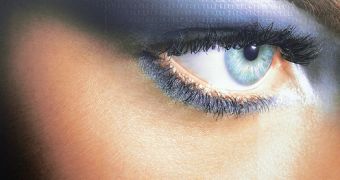A new study published in the Journal of Consumer Research concluded that advertisements promoting beauty products lower female consumers' self esteem.
In ads, there are some symbols that need to be used in order to send a certain image about a product, and this goes from putting together a perfume and a stiletto heel for glamor, to having a talking teddy-bear surrounded by towels for expressing softness.
This research was carried out by Debra Trampe and Frans W. Siero, University of Groningen, the Netherlands, and Diederik A. Stapel, from Tilburg University, who wrote that “one of the signature strengths of the advertising industry lies in its ability to transform seemingly mundane objects into highly desirable products.”
They conducted four experiments and looked at the way that consumers reacted to products that were advertised and to those that were not.
For one of their study, they used female consumers only, whom they asked to look either at an ad for a beauty product – like a perfume or an eye shadow, or at a problem-solving product – like a deodorant or an acne concealer.
Whatever the product was, the researchers either presented it in an advertisement, with a fake brand name and a shiny background, or on a white, simple background.
The authors concluded that “after exposure to the advertised beauty-enhancing products consumers were more likely to think about themselves than when they viewed the same products outside of their advertisements.”
Also, “after viewing an advertisement featuring an enhancing product consumers evaluated themselves less positively than after seeing these products when they appeared without the advertising context,” but the effect was different when the items were problem-solving products.
After all this, the authors concluded that the ads for beauty-enhancing products make women underestimate their attractiveness level, thus lowering their self esteem.
And even if in these commercials there were no human models, the consumers had a tendency of comparing themselves to the image of the advertised product.
They conclude that the “exposure to beauty-enhancing products in advertisements lowered consumers' self-evaluations, in much the same way as exposure to thin and attractive models in advertisements has been found to lower self-evaluations.”

 14 DAY TRIAL //
14 DAY TRIAL //